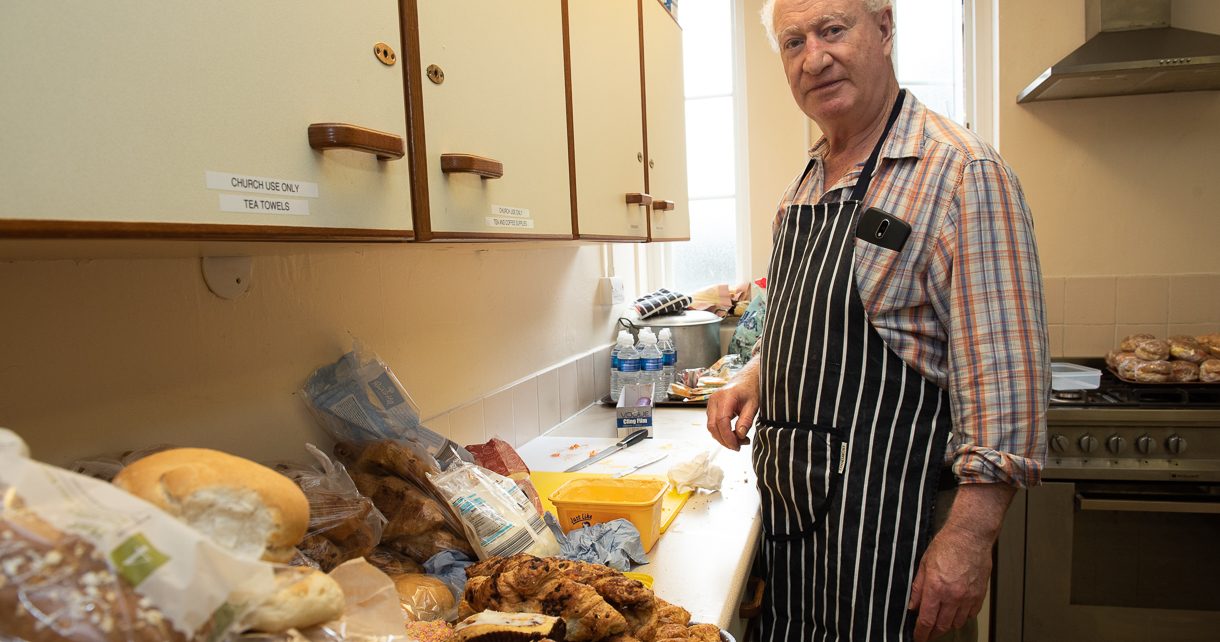The Lone Chancellor
The tax credit cuts saga continued in Parliament yesterday (October 29) as Labour MP Frank Field urged the government through a cross-party motion to rethink its tax credit reforms that, if pushed through as planned, would devastate low-income families.
“Talking to constituents you cannot come away without being incredibly conscious of the fears people are suffering,” he told MPs.
“People we should be saluting and cheering are sick with worry about how they will make ends meet, whether they are going to lose their homes, whether the interest on their mortgages can be repaid, let alone protecting their children.”
Emboldened by an historic vote in the House of Lords this week that forced the government to reconsider the cuts, MPs from across the political spectrum voiced their concerns.
Not one Tory minister
Not one Tory minister spoke out in favour of the government’s tax credit cuts in the Commons debate last night, with at least 10 Conservative MPs outspokenly criticising the cuts, which would see millions of families lose out on an average of £1,300 each year.
In the end, the motion, which calls on the government to “reconsider the effect on the lowest paid workers of its proposed changes to tax credits due to come into force in April 2016, to carry out and publish analysis of that effect, and to bring forward proposals to mitigate it” was carried unanimously – 215 to 0.
Stevenage MP Stephen McPartland spearheaded the Tory opposition to Chancellor George Osborne’s cuts.
“People on £11,000 will still be hit by the £1,200 or £1,400 cut,” he said. “That punishes people who are going out to work and doing the right thing. That does not sit right with me and I cannot support it.
“I warn the Treasury that if it does not come forward with mitigation proposals that we find acceptable, we will continue to raise the issue and try to look after the poorest in society.”
Partland warned that taking billions from the lowest paid would also have an adverse effect on the economy.
“Basic macroeconomics suggests to me that if you take 4.4bn pound off people earning the lowest incomes that’s 4.4bn pound straight out of the economy because you’re taking it out of their pockets and they use that money and go out and spend it right away,” he said.
“So every pound you take off them, you’re taking out of the shops and local economies – it just doesn’t make sense.”
Not far enough
Field noted that the measures the government has taken to mitigate the tax credit cuts – including a higher minimum wage, an increase in free childcare hours and raising the personal allowance threshold – do not go far enough to protect the lowest paid.
Ministers put forward several proposals that would enable the government to still achieve their planned savings without hammering the working poor. Field argued that if only new claimants faced the reduction in tax credits, families currently reliant on tax credits to make ends meet would be spared.
Field also suggested that the Chancellor could delay the cuts, due to take effect in April, until wages went up significantly, or he could aim for a smaller budget surplus than planned.
He noted that there were other areas that the government could potentially make savings, such as pension tax relief. If reformed, he noted, pension tax relief, which costs £34bn each year, could “unlock huge sums of money”.
Link
Last night’s debate came in the wake of work and pensions secretary Iain Duncan Smith’s continued refusal to admit the link between the government’s austerity policies and the dramatic rise in food banks.
At a work and pensions committee on Wednesday (October 28), SNP MP Mhairi Black grilled Iain Duncan Smith over Trussell Trust food bank figures that showed food bank use in Scotland had skyrocketed by nearly 400 per cent between 2012 and 2014.
Iain Duncan Smith dismissed the figures and denied any connection between government measures such as benefits sanctions and food bank use. But in the same breath, he announced a new pilot that would see Job Centre staff being posted at food banks to provide users with advice on benefits.
A Fabian Commission on Food and Poverty report published on the same day found that if the tax credit cuts go through, food bank use will skyrocket even further as food budgets are squeezed.
“A lack of disposable income puts up a huge barrier to being able to acquire, cook and consume an adequate diet,” the Commission noted.
“This is because food is the most flexible part of the household budget: it can be squeezed in ways housing or energy can’t be. It also means that when household budgets of the poorest are hit – as the tax credit changes threaten to do – it’s the food budget that takes the strain.”
Unite assistant general secretary Steve Turner called on the government to do the right thing and change course on tax credit cuts.
“The chancellor says he is in â€listening mode’, but we need him to do more than listen – we need him to act,” he said. “Whatever their motivations, even Tory MPs have come to grips with the fact that the cuts to tax credits will devastate low-paid workers.
Turning point
“We’ve reached a turning point on one of the government’s flagship policies – a point at which the likes of Chancellor George Osborne will have to swallow his arrogance and, under the weight of pressure from the people, admit that he was wrong,” Turner noted.
“It just goes to show what we can accomplish by joining together to tell the government that we aren’t taking it any more.
“Still, the fight is not yet over – we must continue to pressure the government until it backs down on its flagrant assault on working people. Like cuts to tax credits, the trade union Bill is yet another example of this assault.
“We urge everyone to join us at the TUC rally and lobby this Monday (November 2) to fight the bill.”
Find out more about the TUC event here.
 Like
Like Follow
Follow


